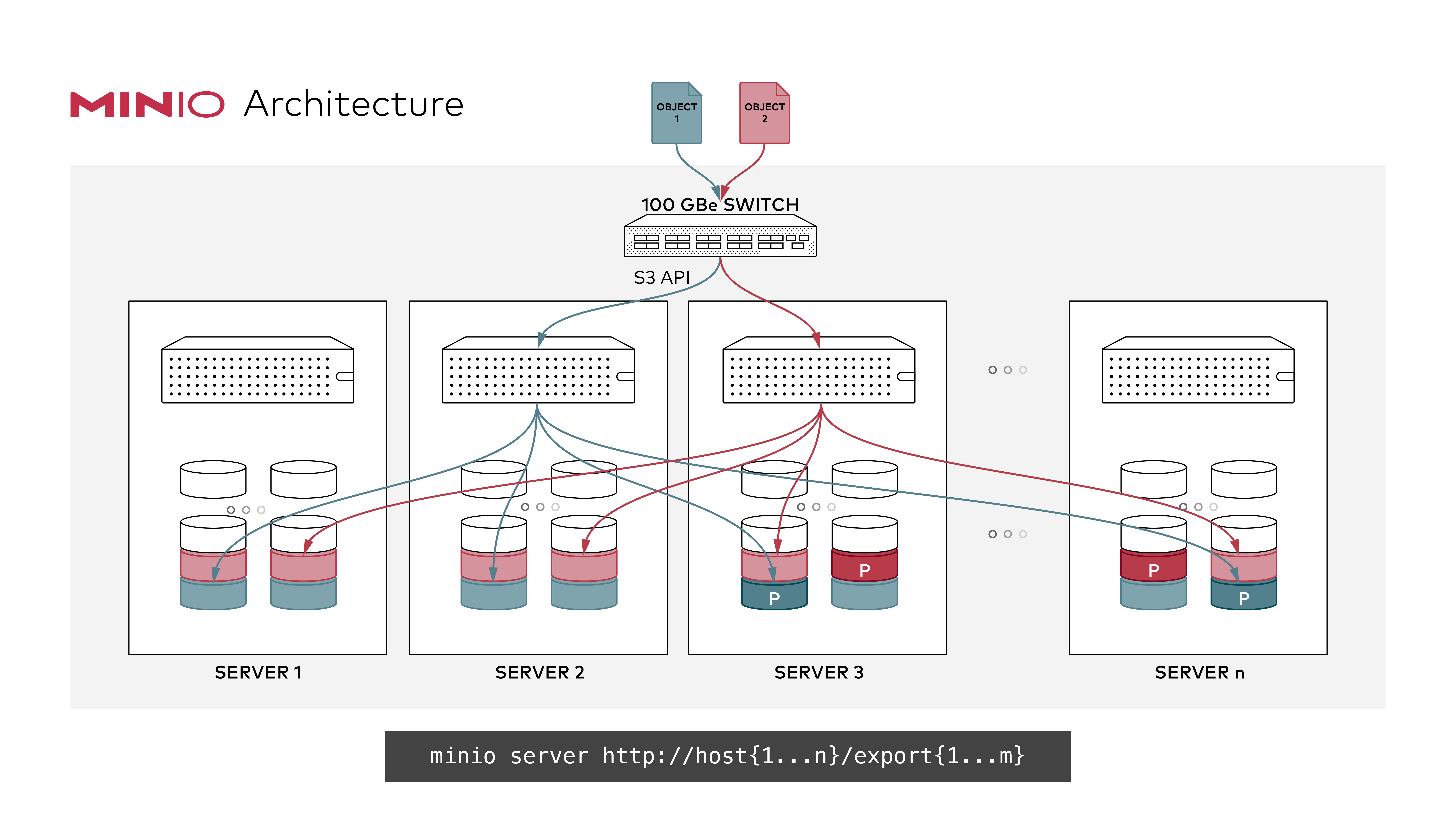- Sort Score
- Result 10 results
- Languages All
Results 1 - 10 of 196 for nodes (0.14 sec)
-
docs/distributed/README.md
Example 1: Start distributed MinIO instance on n nodes with m drives each mounted at `/export1` to `/exportm` (pictured below), by running this command on all the n nodes:  ### GNU/Linux and macOS
Plain Text - Registered: Sun May 05 19:28:20 GMT 2024 - Last Modified: Thu Jan 18 07:03:17 GMT 2024 - 8.8K bytes - Viewed (0) -
common-protos/k8s.io/api/node/v1beta1/generated.proto
// https://git.k8s.io/enhancements/keps/sig-node/688-pod-overhead/README.md // +optional optional Overhead overhead = 3; // scheduling holds the scheduling constraints to ensure that pods running // with this RuntimeClass are scheduled to nodes that support it. // If scheduling is nil, this RuntimeClass is assumed to be supported by all // nodes. // +optional optional Scheduling scheduling = 4; }
Plain Text - Registered: Wed May 01 22:53:12 GMT 2024 - Last Modified: Mon Mar 11 18:43:24 GMT 2024 - 4.4K bytes - Viewed (0) -
docs/distributed/DESIGN.md
sets, which is *16* 64 = 1024* drives in total. - *If total number of nodes are of odd number then GCD algorithm provides affinity towards odd number erasure sets to provide for uniform distribution across nodes*. This is to ensure that same number of drives are pariticipating in any erasure set. For example if you have 2 nodes with 180 drives then GCD is 15 but this would lead to uneven distribution, one of the nodes would participate more drives. To avoid this the affinity is given towards...
Plain Text - Registered: Sun May 05 19:28:20 GMT 2024 - Last Modified: Tue Aug 15 23:04:20 GMT 2023 - 8K bytes - Viewed (0) -
common-protos/k8s.io/api/apps/v1/generated.proto
Plain Text - Registered: Wed May 01 22:53:12 GMT 2024 - Last Modified: Mon Mar 11 18:43:24 GMT 2024 - 34.5K bytes - Viewed (0) -
okhttp/src/test/java/okhttp3/internal/tls/HostnameVerifierTest.kt
// [distinguished_name] // [req_extensions] // [x509_extensions] // subjectAltName=DNS:localhost.localdomain,DNS:localhost,IP:127.0.0.1 // // $ openssl req -x509 -nodes -days 36500 -subj '/CN=localhost' -config ./cert.cnf \ // -newkey rsa:512 -out cert.pem val certificate = certificate( """ -----BEGIN CERTIFICATE-----Plain Text - Registered: Fri May 03 11:42:14 GMT 2024 - Last Modified: Mon Jan 08 01:13:22 GMT 2024 - 40.3K bytes - Viewed (0) -
common-protos/k8s.io/api/apps/v1beta2/generated.proto
Plain Text - Registered: Wed May 01 22:53:12 GMT 2024 - Last Modified: Mon Mar 11 18:43:24 GMT 2024 - 36.4K bytes - Viewed (0) -
common-protos/k8s.io/api/extensions/v1beta1/generated.proto
// An object that describes the pod that will be created. // The DaemonSet will create exactly one copy of this pod on every node // that matches the template's node selector (or on every node if no node // selector is specified). // More info: https://kubernetes.io/docs/concepts/workloads/controllers/replicationcontroller#pod-template
Plain Text - Registered: Wed May 01 22:53:12 GMT 2024 - Last Modified: Mon Mar 11 18:43:24 GMT 2024 - 45.6K bytes - Viewed (0) -
common-protos/k8s.io/api/storage/v1/generated.proto
// refer to a given node as "node1", but the storage system may refer to // the same node as "nodeA". When Kubernetes issues a command to the storage // system to attach a volume to a specific node, it can use this field to // refer to the node name using the ID that the storage system will // understand, e.g. "nodeA" instead of "node1". This field is required. optional string nodeID = 2;
Plain Text - Registered: Wed May 01 22:53:12 GMT 2024 - Last Modified: Mon Mar 11 18:43:24 GMT 2024 - 24.7K bytes - Viewed (0) -
docs/multi-tenancy/README.md
This topic provides commands to set up different configurations of hosts, nodes, and drives. The examples provided here can be used as a starting point for other configurations. 1. [Standalone Deployment](#standalone-deployment) 2. [Distributed Deployment](#distributed-deployment)
Plain Text - Registered: Sun May 05 19:28:20 GMT 2024 - Last Modified: Thu Sep 29 04:28:45 GMT 2022 - 3K bytes - Viewed (0) -
common-protos/k8s.io/api/storage/v1beta1/generated.proto
// not share the same nomenclature for nodes. For example, Kubernetes may // refer to a given node as "node1", but the storage system may refer to // the same node as "nodeA". When Kubernetes issues a command to the storage // system to attach a volume to a specific node, it can use this field to // refer to the node name using the ID that the storage system will // understand, e.g. "nodeA" instead of "node1". This field is required.
Plain Text - Registered: Wed May 01 22:53:12 GMT 2024 - Last Modified: Mon Mar 11 18:43:24 GMT 2024 - 24.9K bytes - Viewed (0)